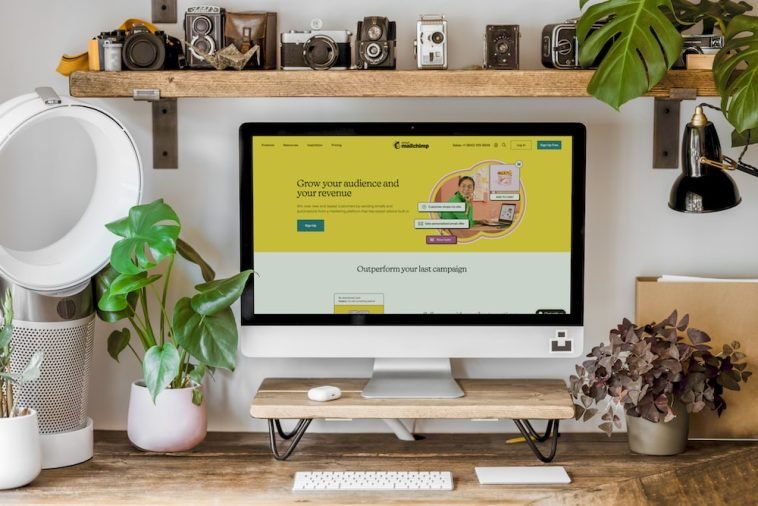Introduction.
Starting an eCommerce business can be exciting but sometimes overwhelming. There’s a lot to consider: finding the right products, setting up a website, marketing, and handling customer support.
But what if you had an assistant to guide you through each step, answering questions, suggesting ideas, and even generating content?
Enter ChatGPT, an AI tool that’s quickly becoming a game-changer for new and experienced entrepreneurs alike.
ChatGPT is not just a trend—it’s a practical tool that can help simplify the entire eCommerce process, from planning your product lineup to drafting sales emails, creating social media posts, and answering customer questions. Imagine the time saved and the insights gained by having ChatGPT right by your side.
In this post, I’ll break down how you can use ChatGPT to get your eCommerce business off the ground and make it a success.
I’ll walk you through key steps, show you how ChatGPT can help at each stage, and share tips on getting the best results. Let’s dive into it!
How Do I Start an eCommerce Business With ChatGPT?
1. Finding Your Niche with ChatGPT.
One of the first steps to starting an eCommerce business is deciding on a niche. You want to sell products people want, but with so many options, narrowing it down can feel like a guessing game.
- Using ChatGPT to Generate Ideas: ChatGPT can generate lists of trending products, niche markets, and even help you brainstorm based on your interests or expertise. For instance, you could ask, “What are some profitable niches in the wellness industry?” and ChatGPT will suggest options like natural skincare products, eco-friendly fitness gear, or supplements for mental health.
- Assessing Market Demand: You can also use ChatGPT to understand the demand for a specific niche. While it doesn’t pull real-time data, ChatGPT can guide you on how to research market trends or use tools like Google Trends and Statista to confirm your niche is worth pursuing.
2. Building Your Business Plan.
Once you’ve decided on a niche, you need a basic business plan to outline your goals, strategies, and how you’ll make money.
- Creating a Simple Business Plan: ChatGPT can help you draft a straightforward plan, including sections like product descriptions, target market, pricing strategies, and marketing channels. You can start by asking, “Help me draft a business plan for selling eco-friendly phone cases.” ChatGPT will structure your ideas, making sure you have a plan that makes sense before investing time and money.
- Setting Goals and Benchmarks: A plan is only as good as its goals. Ask ChatGPT to help set realistic goals, like monthly sales targets, website traffic benchmarks, or even social media follower growth. You can follow up by asking, “How can I achieve these goals?” for tailored strategies.
3. Creating a Brand and Setting Up Your Website.
Next up, you’ll need a brand name, logo, and website to sell your products. This is where ChatGPT shines in helping with creative tasks.
- Naming Your Brand: ChatGPT can help brainstorm brand names based on your niche. If you’re selling pet supplies, for instance, you could ask, “Suggest some catchy names for a pet products brand.” ChatGPT will offer name ideas you can personalize and test with friends.
- Writing Website Copy: One of the most tedious parts of launching a website is writing all the product descriptions, FAQs, and about pages. ChatGPT can help create engaging, informative copy that aligns with your brand’s voice. You could prompt it by saying, “Write a product description for an eco-friendly yoga mat.”
- Setting Up on Shopify, WooCommerce, or Etsy: Once your content is ready, ChatGPT can guide you on platform options (like Shopify or WooCommerce) and even provide step-by-step instructions on setting up your site. Ask questions like, “How do I create a product listing on Etsy?” for quick, actionable advice.
4. Marketing with ChatGPT.
Once your store is live, it’s time to spread the word. ChatGPT is invaluable in helping create marketing content and strategies that don’t require a huge budget.
- Crafting Social Media Posts: ChatGPT can create eye-catching social media captions, suggest hashtags, and even plan out a content calendar. Ask it for post ideas related to your products, or request a weekly calendar. It’s an easy way to keep your social channels active and engaging.
- Email Marketing: Email marketing can drive a lot of sales if done right. ChatGPT can help you craft attention-grabbing subject lines, welcome emails, and even entire newsletters. You could ask, “Write a welcome email for new customers of my eco-friendly product store.”
- Blog Content and SEO: Blogging is a great way to attract traffic to your site, especially if you write content that ranks well in search engines. ChatGPT can generate blog post ideas based on popular keywords, help with outlines, and even write full articles. For instance, you could ask, “Write a blog post on the benefits of eco-friendly pet products.”
5. Providing Customer Support.
Keeping customers happy is key to growing an eCommerce business. ChatGPT can help you prepare for this by creating a set of pre-written responses to common questions.
- FAQ Responses: For questions like “What’s your return policy?” or “How long does shipping take?”, ChatGPT can help you write concise, helpful responses. This can save time and ensure you’re providing consistent answers across email, social media, and live chat.
- Handling Customer Concerns: For trickier situations, ChatGPT can suggest ways to respond politely and professionally, whether the issue is delayed shipping, product complaints, or refunds. Just be sure to personalize the responses to sound natural and aligned with your brand’s voice.
6. Analyzing Performance and Adjusting Your Strategy.
Once you’re up and running, you’ll want to review how your store is doing and make adjustments as needed. ChatGPT can help interpret basic analytics and suggest ways to improve.
- Using Google Analytics and Sales Data: You can ask ChatGPT for advice on analyzing traffic and sales data. For example, you could say, “How do I understand my conversion rate in Google Analytics?” ChatGPT will guide you on tracking important metrics.
- Optimizing Based on Feedback: ChatGPT can help create surveys to gather customer feedback or guide you in evaluating customer reviews to identify product improvements or service adjustments.
FAQs
Q1: Is ChatGPT free to use?
There’s a free version, but the premium version offers more capabilities. You’ll get better answers and faster response times with the premium version, which may be worth it if you’re serious about growing your eCommerce business.
Q2: Can ChatGPT help with ad copy?
Yes, ChatGPT is great for writing ad copy, especially if you’re running ads on Facebook or Google. Just specify your target audience and platform, and ChatGPT can tailor the tone and message for you.
Q3: How reliable is ChatGPT’s advice?
ChatGPT offers a lot of insights, but remember that it’s a tool. Use its suggestions as a foundation, but validate with your own research, especially for niche-specific knowledge or legal information.
Q4: How do I make ChatGPT responses sound like my brand?
You can “train” ChatGPT by sharing examples of your brand’s tone. For example, if your brand is friendly and informal, tell ChatGPT to use a casual tone in its responses.
Conclusion.
Starting an eCommerce business can feel like a big challenge, but with ChatGPT, you’ve got a powerful assistant ready to help at every stage.
From brainstorming product ideas to engaging customers, ChatGPT can make the process smoother and even fun. With just a little guidance, you can leverage AI to save time, lower costs, and stay creative.
Now, what part of your eCommerce journey would you like ChatGPT to help with first?





GIPHY App Key not set. Please check settings